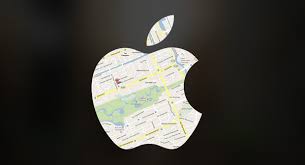
Two years ago, Apple announced plans to rebuild its Maps application from the ground up. Since the official US relaunch earlier this year, there have been many noticeable changes, including more emphasis on businesses and places. As Apple Maps functionality improves, so does its reach. If your business has not yet claimed its Apple Maps business listings, you could be unknowingly sharing misinformation with a large number of potential customers.
The Reach of Apple Maps
New features and functionality are great but how many people are actually using Apple Maps? According to Statista, there were 23.3 million Apple maps users in 2018. This makes it the 3rd largest user base behind Waze (25.6M) and Google Maps (154.4M). Clearly, with over 6.5x more users, Google Maps still reigns supreme as the most used mapping application. But this doesn’t mean you should count Apple out. Apple Maps has a much larger reach than meets the eye.
Apple Maps is the default mapping application for 1.5 billion active iOS devices. Which probably has a lot to do with the connectivity between the devices in the Apple ecosystem. The Macbook, iPhone, iPod, iPad, HomePod, and Apple Watch all talk with each other. And once you have one Apple device, it’s not going to be long before you have another. The average American household owns 2.6 Apple products, growing to 4.7 Apple products for wealthier households. Because of this connectivity, it’s easy for the 64% of Americans who own Apple products to turn to Apple Maps in their moment of need. Especially when Apple features like Siri and Apple CarPlay only increase the chances that users will repeatedly turn to Apple Maps.

Earlier this year, we discussed the growth of in-car voice assistant usage. From September 2018 to January 2020, users of in-car voice assistants grew 13%, with 94% of consumers looking to continue using them in the future. Today, Apple CarPlay is available in over 500 car models. Although many iPhone users have enabled Google Maps as their go-to map, Apple Maps is still the default map for Siri. This means any voice commands for directions while driving will default to Apple Maps. It doesn’t matter how much an iPhone user prefers Google Maps if you’re driving Siri and Apple Maps are the much safer option.
The Apple ecosystem is not the only place users can find Apple Maps. The Apple Maps rebuild included the expansion of its MapKit JS. Apple Maps now powers many third-party apps including Instagram, Nike Run Club, and DuckDuckGo to name a few. Because of Apple Maps’ stronger privacy policies and cheaper (or even free) pricing options, it’s possible we may see more apps and services make the switch to Apple Maps.
How does Apple Maps Impact Local Businesses?
The Apple Maps rebuild has only helped to grow its reach. Businesses who are not actively managing their Apple Maps listing could be unknowingly sharing misinformation with customers. Apple Maps has relied on third-party services like Yelp and Foursquare to provide business information for several years. Now, however, Apple Maps is relying more on data from Maps Connect and user-suggested edits to keep listing information accurate. If businesses want to ensure their listing information is accurate on Apple Maps, it’s essential they claim, monitor, and update their Apple Maps business listings.
How to Claim Your Business on Apple Maps
If you have yet to claim your Apple Maps business listings, here’s how you can claim or add your business.
- Log in to Maps Connect. If you don’t have an Apple ID you’ll need to create one.
- Search for your business. Select the correct location then click “claim this place”.
If your business is not listed you can add it.
- Click “add new place” to add your location.
- Verify your business. You’ll receive a call from Apple on the business phone number that you entered.
As an Apple partner, Chatmeter is able to give our customers better access to the tools they need to maintain their online presence all from an easy-to-use singular dashboard.
“Chatmeter’s enhanced partnership with Apple allows brands to ensure all locations have accurate information on their Apple Maps listings at all times,” says Chatmeter Product Manager, Darren Seibert. “This is really important in today’s climate where information like store hours and services are constantly changing because of COVID-19. Our close relationship with Apple is built around speed and accuracy, with daily updates offsetting the challenges brands often face with either limited access to listing data or publishing delays.”
If your brand needs help managing multiple business locations, trust Chatmeter’s Local Listing Management team to monitor, update, and track your local business listings on Apple Maps among other sites like Google, Facebook, Bing, and Yelp. Click here to learn more.
What information can I update on Apple Maps Business Listings?
Providing consumers with accurate information about your business is an essential part of any local listing management strategy. Make sure your Apple Maps listing contains the following information.
- Business Name
- Address
- Phone Number
- Business Category
- Business Location (Apple uses coordinates to help users locate the front entrance to your business)
- Business Hours
- Website
- Social Media Accounts, Yelp Profile, and other relevant links
As Apple Maps continues to enhance its product and privacy concerns increase, we expect the reach of Apple Maps to grow. Businesses need to ensure their Apple Maps information is accurate and up-to-date at all times in order to take advantage of the first and third-party apps powered by Apple Maps. As an Apple Maps partner, Chatmeter helps multi-location brands and agencies protect their Apple Maps data through our local listing management tools and services.
Want To Learn More?
We would love the opportunity to learn more about your business and to show you how Local Listings Management can help your business improve Word-of-Mouth advertising. Please click on the button below to schedule a consultation with our team.








